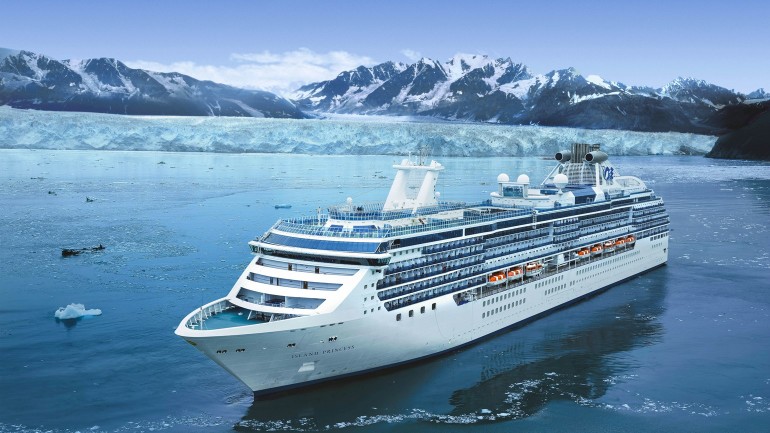Sponsored Listings:
An old criminal case is in the news again. A federal judge is unhappy. A government report puts an ugly face on company efforts to keep the environment clean.
It’s been a tough two weeks for Carnival Corp.
And it could get worse. Judge Patricia Seitz of the U.S. District Court for the Southern District of Florida has ordered Carnival back to court in June to determine if it violated the terms of its parole — in the process, showing contempt of court — and if so, what the consequences should be.
At an April 10 status conference, Seitz threatened to temporarily block all Carnival Corp. ships from calling at any U.S. ports.
In a statement issued after the conference, Carnival asserted that there had been a misunderstanding.
“We heard the concerns expressed by Judge Seitz and will do our utmost to ensure we meet all expectations under the [Environmental Compliance Program] and continue to strive to be best in class on environmental compliance,” the company stated. “Our environmental responsibility has been and remains a top priority for the company.”
Although few may remember it, Carnival has been laboring under a criminal sanction since 2016. That’s when its Princess Cruises brand agreed to plead guilty to seven felony charges stemming from oil dumping and a subsequent cover-up.
As part of its sentence, which included a $40 million fine, Carnival agreed to five years of probation and a five-year, court-monitored Environmental Compliance Program, not just for Princess but for eight Carnival brands.
In a 205-page report, the court-appointed monitor laid out a laundry list of environmental violations from 2017, most or all reported voluntarily by Carnival under the terms of the program.
Based in part on the report’s findings, the U.S. Office of Probation filed a motion in March to revoke probation in the Princess case. Corporations can’t be sentenced to jail time. But Seitz could impose other conditions, possibly even including the suspension of Carnival’s right to dock in the U.S.
The likely focus of debate about whether Carnival violated probation is an allegation that the company has been secretly and improperly preparing its ships for audits under the Environmental Compliance Program.
In December 2017, evidence was presented of the preaudits, and Seitz instructed Carnival to end them. But according to federal prosecutors, Carnival then developed a second such program.
The second program differed from the first in that the preaudits weren’t timed immediately before the scheduled court audits, but prosecutors said they effectively subverted the Princess plea agreement.
“The United States views both programs as reflecting a serious failure by the defendant at its senior executive levels to appreciate the fact that Princess is a convicted criminal on probation and that the terms of probation are mandatory and not discretionary,” wrote Thomas Watts-FitzGerald, an assistant U.S. attorney in Miami.
At the April 10 status conference, Seitz seemed inclined to agree.
“The defendant is a criminal. It is a recidivist criminal,” she at one point told Carnival’s lawyers, according to an account in the Miami Herald.
Federal judges often try to get a defendant’s attention and underscore the seriousness of an issue by making threats that might or might not be carried out, depending on the defendant’s level of contrition and acquiescence.
A federal judge’s discretion is broad, and parties that have been admonished in cases typically don’t gamble with the potential for an adverse ruling.
In its statement, Carnival said that it heard the judge and that leaving the environment “even better than when we first arrived” is in the best interests of the company, its guests and the oceans.
“We look forward to clarifying any issues and demonstrating our commitment,” it said.
The judge might have to weigh Carnival’s promises against some of its practices, as cited in the court monitor’s report, which was submitted in 2018 and labeled confidential. Seitz said she released it “so the public can see what this criminal defendant is doing,” the Herald reported.
In one example, prosecutors say a court-designated auditor aboard the Carnival Elation informed its Environmental Officer that plastic and other nonfood items were mixed with the ship’s food waste and that garbage was not being properly segregated. The ship failed to respond, and the trash was discharged overboard, prosecutors said.
The report cites crew confusion or lack of training for other pollution incidents. In November 2017, the Carnival Vista discharged cleaning chemicals into Bahamian waters “due to a misinterpretation of territorial waters,” the report said.
In California, oily bilge water was discharged from the Carnival Imagination because the engineer “did not ask for a confirmation from the bridge to commence the discharge,” the report said.
Other conclusions in the report are more favorable to Carnival. After visiting more than 20 vessels and shoreside offices, conducting hundreds of interviews and reviewing thousands of documents, the report said the monitor found no evidence that Carnival brands had repeated any of the underlying offenses in the Princess case.
It also said Carnival has “qualified and dedicated” compliance personnel and that employees on balance were highly cooperative and crew members were “willing and often eager” to talk about environmental improvements.
But the report also said Carnival’s complex corporate structure and multiple brands makes it hard for employees to know who is responsible for what. It also asserted that Carnival’s chief compliance manager lacks sufficient authority.
It faulted Carnival for a “blame culture” that pins responsibility for environmental violations on individual bad decisions or misconduct, rather than looking more broadly for systemic culpability.
Source: travelweekly.com











VERY EASY TO BLAME OTHER PEOPLE AND COMPANIES FOR VIOLATIONS. IN MY OPINION, CARNIVAL IS A MONEY HUNGRY GREEDY COMPANY AND IS TOTALLY RESPONSIBLE FOR KNOWINGLY COMMITTING WRONG DOING..